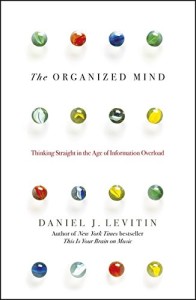 I’m currently reading Daniel Levitin’s excellent book The Organized Mind in which he delves into all sorts of ways that our brains work and how we might want to change our behaviour to make our lives easier.
I’m currently reading Daniel Levitin’s excellent book The Organized Mind in which he delves into all sorts of ways that our brains work and how we might want to change our behaviour to make our lives easier.
He makes some excellent points on the human desire to lie in everyday interactions and asks why we do it.
“One reason is fear of reprisal when we’ve done something we shouldn’t. It is not the better part of human nature, but it is human nature to lie to avoid parliament.”
But Levitin then points out the conundrum, also based on natural behaviour.
“But it is also human nature to forgive, especially when we’re given an explanation. In one stufy, people who tried to cut in line were forgiven by others even if their explanation was ridiculous.
In a line for a copy machine, ‘I’m sorry, may I cut in? I need to make copies’ was every bit as effective as ‘I’m sorry, may I cut in? I’m on deadline.”
And if you think forgiveness is only reserved for trivial explanations, then you’d be wrong.
“When doctors at the University of Michigan hospitals started disclosing trheir mistakes to patients openly, malpractice suits were cut in hal. The biggest impediment to resolution had been requiring patients to imagine what their doctors were thinking, and having to sue to find out, rather than just allowing doctors to explain how a mistake happened.”
Nicholas Epley, a professor at the University of Chicago Booth School of Business writes:
“If being transparent strengthens the social ties that make life worth living and enables others to forgive our shortcomings, why not do it more often?”
Being honest with others is something we all struggle with and, obviously, some white lies are all part of the social glue that prevents tempers flaring and avoids hurting other people, but there’s clearly a case to being more open.
If you’re interesting the way our brains work, Daniel Levitin’s The Organized Mind is a fascinating read.
